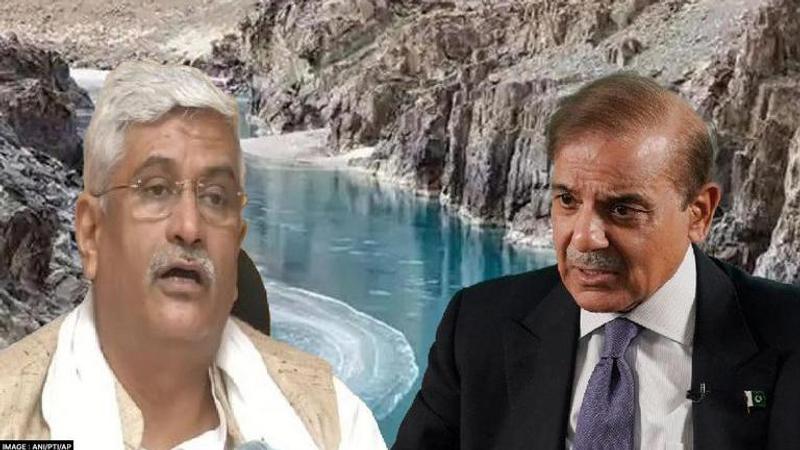Published 07:41 IST, April 23rd 2023
Gajendra Shekhawat slams Pakistan's 'dual precedence' on 'purest' Indus Water Treaty
Union Minister Gajendra Shekhawat termed the Indus Water Treaty as the "purest" treaty in the world and slammed Pakistan for violating it by "dual precedence"

Union Minister Gajendra Shekhawat on Saturday termed the Indus Water Treaty (IWT) as the "purest" treaty in the world and slammed Pakistan for violating it by showing "dual precedence". Union Minister Shekhawat said that after partition, Indus Water Treaty was signed between India and Pakistan regarding the distribution of water. "It is the purest treaty, out of all the water treaties in the world. Even after three full-fledged wars, India has kept the sanctity of the treaty which shows India's character".
He lashed out at Pakistan for showcasing "dual precedence" and violating the rules of the treaty. The BJP leader informed that Pakistan recently challenged India's rights and demanded a third party's intervention to look into the matter. The World Bank also approved it, but, at the same time, Pakistan went on to approach the International Court of Justice. This dual precedence is against the treaty," he said.
The Union Minister added, "India has registered its objection against it at the World Bank. The matter is being discussed, and let's wait for the decision from there for deciding upon the future course of action". On being asked about Pakistan's current economic situation, Shekhawat said, "For understanding this, we have to listen to the Pakistan minister's remark. It will show why Pakistan is undergoing a crisis, and why is it making such statements.
India Issues Notice Of Modification to Pakistan over Indus Water Treaty
On January 25, 2023, India issued notice to Pakistan for modification of the Indus Waters Treaty (IWT) of September 1960 after Islamabad's actions adversely impinged the provisions of the treaty, according to sources. The notice was conveyed through respective Commissioners for Indus Waters as per Article XII (3) of the IWT.
“India has always been a steadfast supporter and a responsible partner in implementing IWT in letter and spirit. However, Pakistan’s actions have adversely impinged on the provisions of IWT and their implementation, and forced India to issue an appropriate notice for modification of IWT,” the source added.
In 2015, Pakistan requested for the appointment of a Neutral Expert to examine its technical objections to India’s Kishanganga and Ratle Hydroelectric Projects (HEPs). In 2016, Pakistan unilaterally retracted this request and proposed that a Court of Arbitration adjudicate on its objections. This unilateral action by Pakistan is in contravention of the graded mechanism of dispute settlement envisaged by Article IX of IWT. Accordingly, India made a separate request for the matter to be referred to a Neutral Expert.
The World Bank acknowledged this itself in 2016 and took a decision to “pause” the initiation of two parallel processes and request India and Pakistan to seek an amicable way out. Despite repeated efforts by India to find a mutually agreeable way forward, Pakistan refused to discuss the issue during the five meetings of the Permanent Indus Commission from 2017 to 2022. At Pakistan’s continuing insistence, the World Bank has recently initiated actions on both the Neutral Expert and Court of Arbitration processes. Such parallel consideration of the same issues is not covered under any provision of IWT.
What is the Indus Water Treaty?
Indus Waters Treaty (IWT) was signed on September 19, 1960, between India and Pakistan and was brokered by the World Bank. The IWT has been displayed as a global model of the sanctity of treaties between two nations that are frequently at odds with each other. The IWT has survived the Indo-Pak War of 1964 & 1971, and also the 1999 Kargil conflict.
The treaty gives control over the waters of the three "eastern rivers" — the Beas, Ravi and Sutlej with a mean annual flow of 41 billion cubic metres to India, while control over the waters of the three "western rivers" — the Indus, Chenab and Jhelum with a mean annual flow of 99 billion cubic metres to Pakistan. India has about 20% of the total water carried by the Indus system while Pakistan has 80%.
Updated 12:33 IST, April 24th 2023




